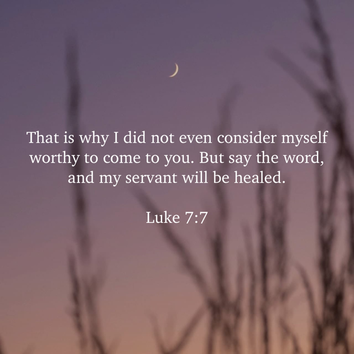|
Good morning!
Happy Mother's Day! We're so glad you decided to join us today!
We are meeting together each morning in the Sunday School room, just off the sanctuary. If you feel comfortable, we would love to have you join us in person. When we meet, we share any joys or concerns from the past week to pray for. If you have anything you would like to share, please feel free to do so in the comment section of this post. When you are ready, use the prayer below (source) to get started.
Heavenly Father,
I speak this prayer to you now in gratitude and praise for the gift of mothers. My mother, those of my friends, relatives, those I’ll never know, all mothers. Thank you for the role they play in the family unit. Thank you for their teachings, their wisdom, their patience, and understanding. Thank you for the physical, emotional, and spiritual gifts they possess. I pray that you help mothers all across the world to be a blessing upon their children. Whether delivering affirmation or discipline, I pray that you help every word and action to be done in love. And I pray that children throughout the world would take time to honor their mothers, that you would show them how to uniquely do so. I pray that these mothers also act as a blessing beyond their households, reaching into their extended families, communities, churches, schools. I pray that the impact of motherhood is revered throughout society and that these women are acknowledged for their everyday impact on the world. May you guide each of them into fulfilling their purpose here on Earth. Amen.
Today's lesson is on Romans 8:18-30.
Lesson Context
The book of Romans was a letter written by the apostle Paul to the Romans. It includes Paul's understanding of the Old Testament background for the Christian message, the nature of Christian salvation based on the atoning death of Christ, the centrality of faith as the only path for human salvation, the relationship between Christians of Jewish and Gentile backgrounds in the plan of God, and several other matters. In Romans chapters 5 - 8, Paul lays out the implications of Jesus' death and resurrection. Through Christ, the reign of sin and death has been overthrown by righteousness and grace (Romans 5:21). With the reign of sin and death defeated, believers are free. New life in Christ also means freedom from bondage to the law (Romans 7:1-6). Romans 8 brings these various elements to a climactic resolution. There is, "now no condemnation," for those, "in Christ Jesus," (Romans 8:1). What the law failed to do, God himself has done through Jesus (Romans 8:3). Righteous living is enabled by the Holy Spirit, who dwells in those who have faith in Christ (Romans 8:9-10). All these wonderful truths, however, raise a painful question: Why do suffering and death still wreak havoc? Paul indicated the likelihood that Christians would suffer for Christ's sake. Paul encouraged the Roman believers to keep the big picture in mind: we are, "heirs of God and co-heirs with Christ," (Romans 8:17).
I. Present Sufferings
Paul was trained by a respected Jewish teacher. For Paul to consider was for him to draw on both his faith in Christ and his vast knowledge of scripture. Paul wanted to put our present sufferings in perspective. Suffering of any kind pales in comparison to the glory that will be revealed to us. The Greek word translated glory can be interpreted in two ways: as an adjective to describe freedom or as a noun standing on its own. This second option would explicitly refer to believers' status as being glorious rather than experiencing a glorious liberty. Creation in general includes anything and everything God has made. In verse 19, it refers to the entire created world with the exception of the children of God. Following Adam and Eve's sin in the Garden of Eden, God cursed the ground as part of the humans' punishment. Creation was thwarted from flourishing and subjected to frustration. Only when the freedom and glory of the children of God is finally and fully gained will the creation be released from the curse as well. Childbirth is painful, but the healthy infant who is born brings immediate joy. The analogy captures a common first-century Jewish belief: that as the salvation of God drew near, conditions on the earth would worsen progressively, like the contractions that get worse and worse until finally the baby is born. Firstfruits as a concept comes from the Festival of Harvest, also called Shavuot. The people would make sacrifices to the Lord of the first grains they gathered. This expressed thanks and confidence that God would bless the people with bounty through the harvest season. Like the firstfruits of a harvest, the indwelling of the Spirit within believers is a kind of down payment, guaranteeing what is still to come. Christian hope is not wishful thinking or anticipating a probable outcome. Rather, it is assured because hope is not based on our own faithfulness. It is based on God's faithfulness to his promises. When Paul declares that, "faith, hope and love," remain and the last is the greatest, it is not because faith and hope are of dubious value. Instead, it indicates that when faith and hope are realized in heaven, we will not need them as we do now, in anticipation. Love will still be required, even in heaven. II. Present God Our weakness includes every piece of evidence that we live in a sin-sick and dying world. When we do not know what we ought to pray for, the Spirit steps in on our behalf. Jesus promised the Spirit would be his disciples' advocate. Paul built on this, giving believers confidence that the Spirit themself intercedes for us. Paul had an unshakeable faith that all things are under the control of God, that all things God works for the good of those who love him. Faith in the sovereign God means believing that he is in control of all things. Even the evil in our world that causes the suffering of righteous people is not beyond his control. As the first to rise from the dead into glory, Jesus' bodily resurrection made him the firstborn from the dead. Because of his resurrection, we expect to be among many brothers and sisters who will also return to life. The promise of our own resurrection is the ultimate hope we have in the midst of our sufferings.
Conclusion
Christians have a hope that persists through the ordeals of life. Outside of faith in Christ, this hope is not possible. While we hope for the glorious future in Christ, we still have work to do. We have a responsibility to all creation. God has made us stewards of his good earth. While people suffer, all creation suffers. Likewise, believers' peace is the peace of the world. We wait in hope for the ultimate fulfillment of God's promises. May we, as people who have died with Christ and live again in the Spirit, be beacons of God's wonderful intentions for all creatures, great and small. Prayer Father, help us view suffering through the perspective of faith. Teach us to depend on your Holy Spirit. Thank you for your Son, who has purchased our freedom. In his name we pray. Amen.
Questions for Discussion
Benediction
Today's benediction is from the Tree of Life Version.
Next week's lesson will be on Galatians 3:18-29.
0 Comments
Leave a Reply. |
AuthorWe are a small, rural Presbyterian church in southwestern Pennsylvania. Archives
July 2024
Categories
All
|



 RSS Feed
RSS Feed